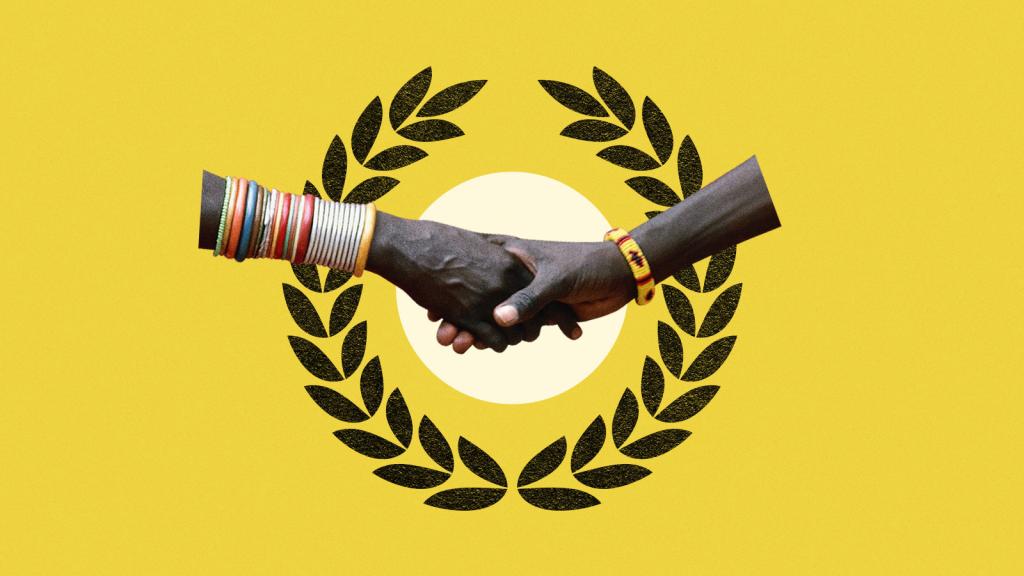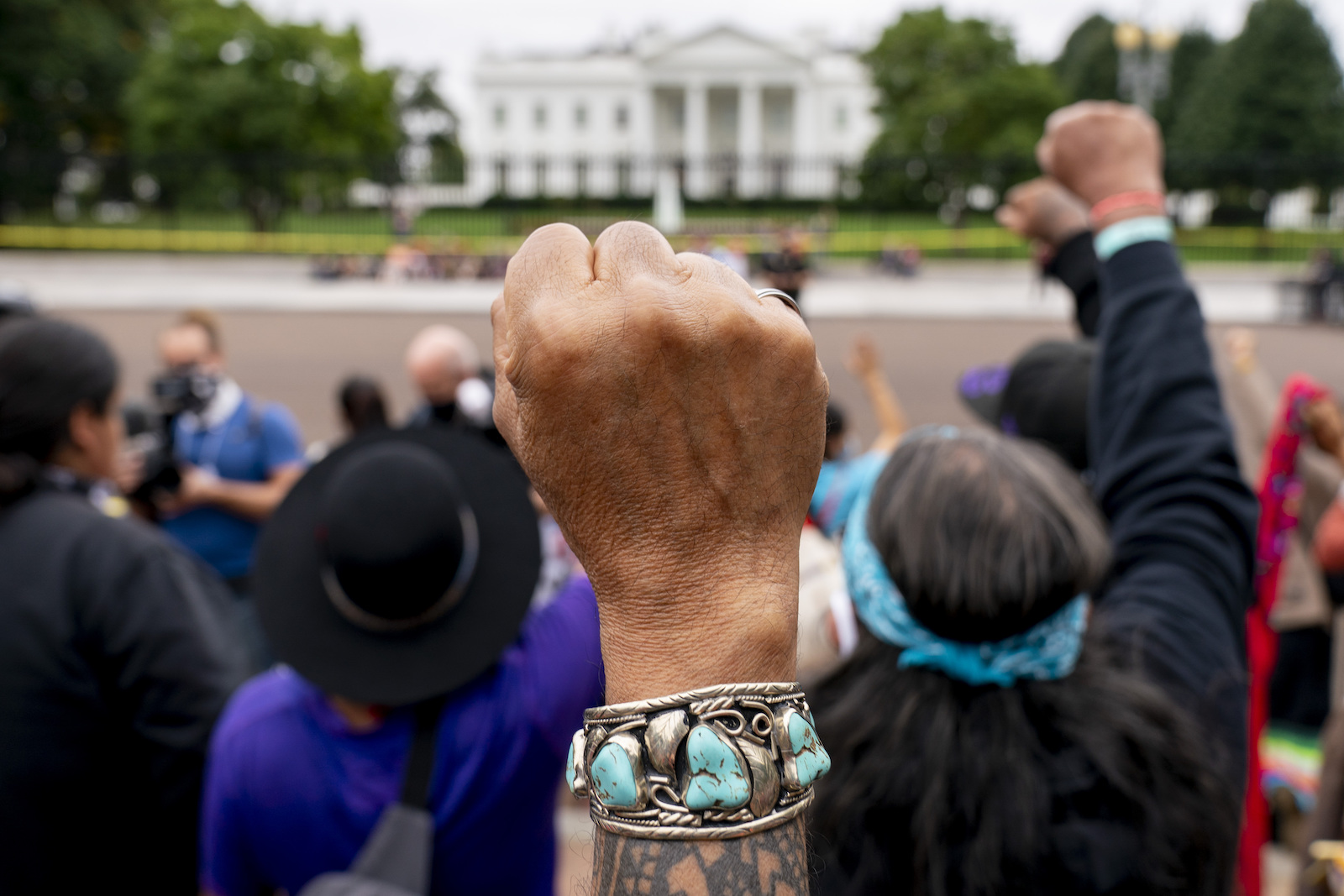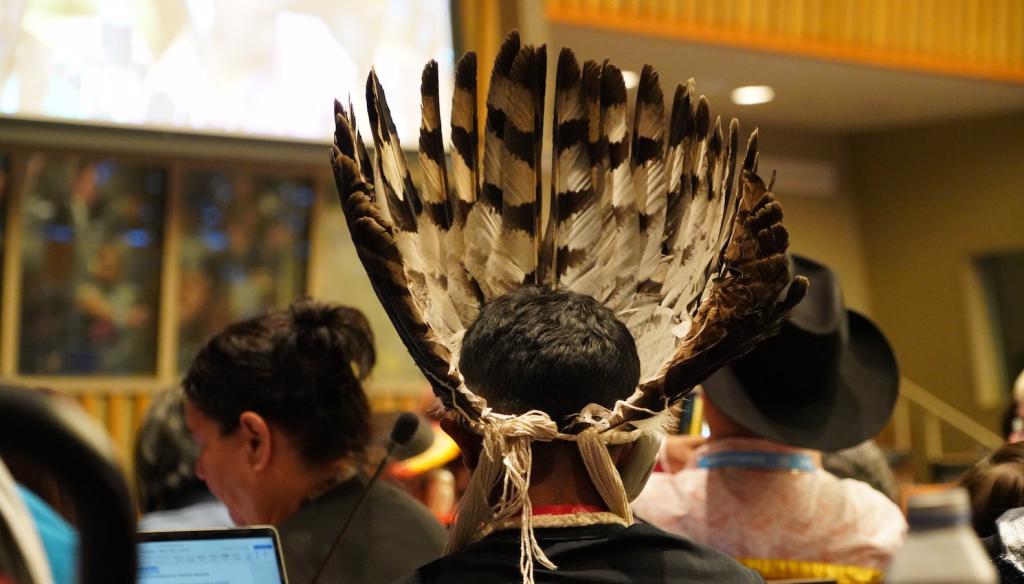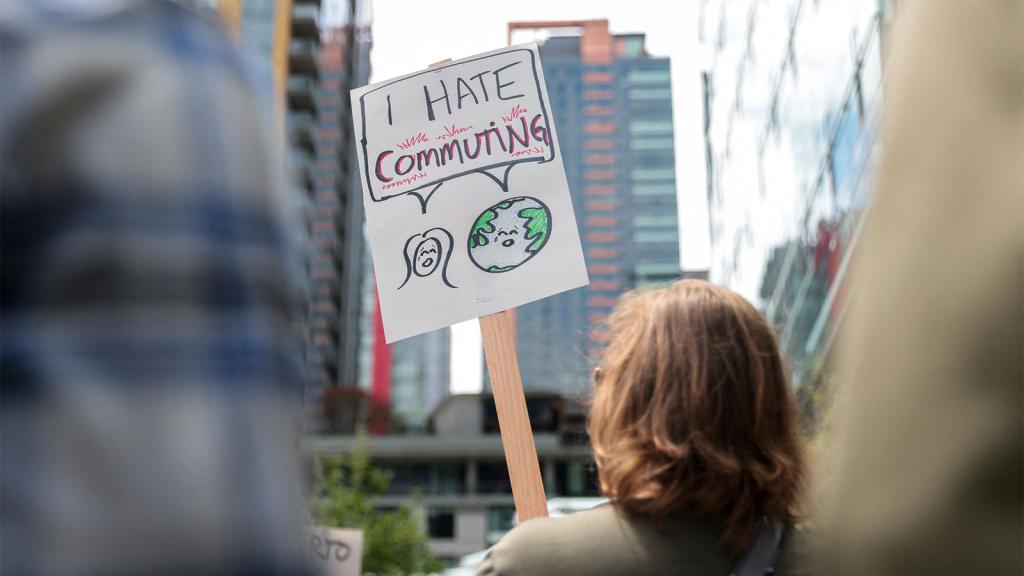This story is published as part of the Global Indigenous Affairs Desk, an Indigenous-led collaboration between Grist, High Country News, ICT, Mongabay, Native News Online, and APTN.
Sometimes when a storm hits and the waves are high in the Straits of Mackinac, which connects Great Lakes Michigan and Huron, Whitney Gravelle wonders if she’ll get a call: Maybe there will be a breach, and oil from the Line 5 pipeline under the strait will spill into her homelands. Gravelle, president of the Bay Mills Indian Community, has been working to decommission Line 5, run by Enbridge, for years. The pipeline was built in the strait in 1953, without consultation with Bay Mills or other tribes. In 2010, a nearby pipeline also overseen by Enbridge spilled 1 million gallons of oil into Michigan waters.
“I have routine nightmares about Line 5,” Gravelle said. “I think it’s because we are so involved in the issue — we work on it every single day.”
In 2023, Gravelle brought the issue of Line 5 in front of the U.N. Permanent Forum of Indigenous Issues, or UNPFII, the largest annual gathering of Indigenous peoples in the world. In response, the U.N. recommended that the U.S. and Canada decommission the pipeline because of its “real and credible threat” to Indigenous rights. That has not yet happened. This week Gravelle was at UNPFII again to bring attention to Line 5.
Gravelle was also there to speak on a panel about how the United States has — or hasn’t — applied the U.N. Declaration on the Rights of Indigenous Peoples. Also known as UNDRIP, the declaration is the international standard for Indigenous rights. While legally non-binding, UNDRIP encompasses the rights of Indigenous peoples to maintain lifeways, language, sovereignty, and political autonomy, free from assimilation and colonizing forces.
The discussion — put on by the Implementation Project, a partnership between the Native American Rights Fund and University of Colorado Law School — included U.S. officials like Assistant Secretary for Indian Affairs Bryan Newland, also a citizen of the Bay Mills Indian Community, and others from the Department of Commerce and Agency for International Development. There, Newland highlighted the Biden administration’s recent policies to increase inclusion of tribal nations’ priorities and perspectives.
U.S. history with the declaration is rocky. When Indigenous leaders from across the globe first introduced it in 2007 the U.S. voted against it, saying that it “should have been written in terms that are transparent and capable of implementation.” Three years later, under the Obama administration, the U.S. became the last country to adopt UNDRIP, acknowledging it as a “moral and political force.” But today, there is still a “vast implementation gap,” said former U.N. Special Rapporteur on the Rights of Indigenous Peoples James Anaya at the forum Tuesday.
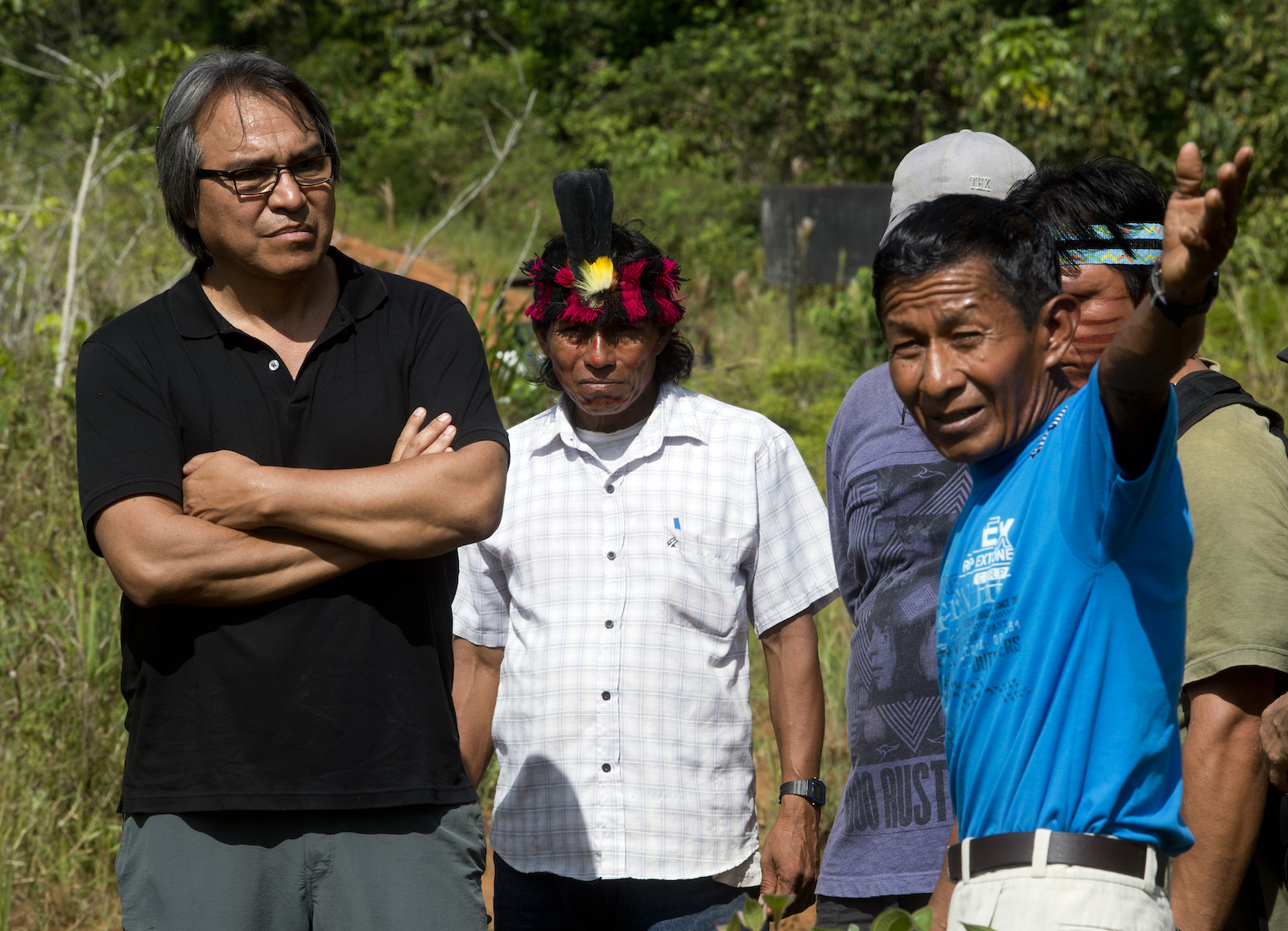
The declaration is an articulation of basic human rights to things like life, religion and self determination in an Indigenous context, said Kristen Carpenter, a law professor at the University of Colorado Boulder and past appointee to the Expert Mechanism on the Rights of Indigenous Peoples, which helps governments implement UNDRIP. “United States law and policy often still fall short of those basic human rights. It’s easy to get lost sometimes in the nuts and bolts and the very difficult work of policy,” Carpenter said at the discussion Monday. “But this work could not be more important, in my perspective, because of the issues that are on the table.”
In the U.S., concerns range from land protection to cultural continuity to reckoning with America’s past policies of genocide. A critical part of the declaration is that governments should get Indigenous nations’ informed consent on projects and policies that could impact them. And while UNDRIP considers such consent to be the bare minimum, many countries, including the U.S., interpret it as the highest standard, and have failed to enact it.
Free, prior, and informed consent could give tribes and Indigenous communities more control over decisions that currently rest solely with the federal government, like Line 5 or the massive copper mine proposed at Oak Flat that is opposed by the San Carlos Apache Tribe.
Consultation with tribes has been federal policy — in name, if not in practice — since 2000, but has been widely interpreted by agencies and officials. Even though the U.S. hasn’t adopted consent as the basis for its relationships with Indigenous nations, it has begun to incorporate it into specific policies, Newland said at the forum discussion on Monday.
Last December, for example, the department revised its regulations implementing the Native American Graves Protection and Repatriation Act, first passed in 1990, which determines how burial sites, sacred objects, and human remains are handled and returned to tribal nations. The revision uses consent language directly from the declaration, and includes the requirement that federally funded museums, agencies, and universities receive the free, prior, and informed consent of descendants or tribes before exhibition, research, or access to human remains or sacred objects. The change has already been impactful, if narrow, and some museums have taken action to avoid violating the law.
Newland also said the department has instituted a new model to find consensus with tribes when an activity impacts tribal health, jurisdiction, sacred sites and rights. The policy applies to everything from mining to green energy development.
In addition to improvements in consultation policies, Newland cited the Department of Interior’s report on the history of boarding schools in the U.S. as one way the department is upholding article 8 of the declaration, which deals with forced assimilation. The department is also in the process of consulting with tribal nations on a 10-year national plan for Indigenous language revitalization.
While acknowledging the Interior Department is the “shining star” of tribal consultation in the U.S., Gravelle said that’s just not the case with other agencies the tribe has to engage with, such as the U.S. Army Corps of Engineers. The result is an uneven dynamic across the government. “We touch so many different federal agencies,” Gravelle said. “They all have to honor those obligations that were made with our tribal nations, and yet we continue to see that failure over and over again.”
There is also the shifting ground of policy changes from one administration to the next. The changes at the Department of Interior are positive, but can be undone — or go unused — by a new administration. “It does continuously feel like that you are trying to prove that you are worthy of life, and that you are worthy of having a home, and that you are worthy of being able to raise your children with your cultural values on the lands that your ancestors lived,” Gravelle said of the struggle to be heard by federal governments.
That domestic discord, Gravelle said, “has prevented the United States from emerging as a leader, especially in the international field, when it comes to international Indigenous rights.”
This story has been updated.
